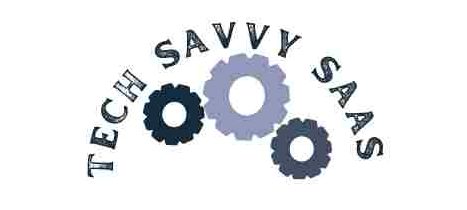Imagine Sarah is an accountant by profession who has always harbored a passion for technology. One day, she decided it was time for a change. Through a journey of self-education on an online learning platform, she transitioned into a successful career in web development. Sarah’s story is a testament to the transformative power of education and the doors that open when we choose to walk through them. This is the essence of our review of online learning platforms for coders.
The purpose of this post is to delve deep into the world of online learning platforms specifically tailored for coders. In today’s digital age, the abundance of online resources has made it possible for anyone to learn coding, web development, or computer science from the comfort of their home. However, with so many options at our fingertips, choosing the right platform becomes crucial. Through original research, analysis, and personal experiences, this review aims to guide aspiring coders toward making an informed decision that aligns with their learning style and career goals.
Choosing the right online learning platform is not just about gaining new skills; it’s about ensuring those skills are relevant and recognized and can propel you towards your career aspirations in programming, web development, and data science.

Why does choosing the right platform matter?
The digital landscape is evolving at an unprecedented pace, and with it, the demand for skilled programmers, web developers, and data scientists is soaring. According to the U.S. Bureau of Labor Statistics, employment in computer and information technology occupations is projected to grow 11% from 2019 to 2029, much faster than the average for all occupations. This growth translates into about 531,200 new jobs, highlighting the increasing importance of tech skills.
However, not all learning platforms are created equal. Some may excel at offering comprehensive courses in web development, while others might be better suited for those looking to dive into data science or machine learning. For instance, a survey conducted by Stack Overflow in 2020 revealed that 69.7% of professional developers believe hands-on experience is the most important type of education for career advancement in tech, surpassing degrees from educational institutions.
This is where the importance of choosing the right platform based on expert reviews and an extensive library of content becomes evident. Platforms like Coursera, Udemy, and Codecademy each have their own unique strengths:
- Coursera partners with universities to offer courses that can lead to degrees and professional certificates, making it a great option for those looking for formal education in computer science.
- Udemy offers a vast array of courses on a pay-per-course basis, providing flexibility for learners to pick and choose specific skills they want to develop.
- Codecademy focuses on interactive learning and hands-on projects, making it ideal for those who learn best by doing.
Choosing the right platform can significantly accelerate your learning process. A well-structured course on web development, for example, can guide you through the basics of HTML, CSS, and JavaScript, all the way to building complex web applications, often within a matter of months. Furthermore, many platforms offer community support, providing a space for learners to share ideas, ask questions, and solve problems collectively.
In-Depth Reviews of Top Platforms
Coursera: The Academic Approach
Coursera has firmly established itself as a leader in the online learning space through its strategic partnerships with over 200 universities and companies worldwide. This platform offers a vast range of courses, specializations, professional certificates, and degrees across various disciplines, including computer science, data science, and information technology.
Partnerships and certifications
Coursera’s collaboration with prestigious institutions like Stanford University, the University of Michigan, and Duke University enables learners to access quality education from anywhere in the world. For example, its partnership with the University of Illinois at Urbana-Champaign offers a Master of Computer Science degree that can be completed entirely online. Coursera also teams up with industry leaders like Google and IBM to provide professional certificates that prepare learners for careers in IT support, data analytics, and more.
Courses and Learning Model
Coursera offers an extensive range of programming languages and development courses, including Python, Java, C++, and R, catering to learners at all levels. Its Data Science specialization at Johns Hopkins University, for instance, is highly acclaimed and has helped thousands of students start their careers in data science. The platform’s learning model combines video lectures, interactive quizzes, peer-graded assignments, and hands-on projects to ensure a comprehensive learning experience.
- Free Courses: Coursera provides many free courses, allowing students to audit video lectures and readings at no cost. However, a fee is required to access graded assignments and earn a certificate.
- Pros: access to high-quality university-level education, flexibility to learn at your own pace, and the opportunity to earn accredited degrees and professional certificates.
- Cons: The cost can be a barrier for some learners, and the academic approach may not suit everyone’s learning style.
Udemy: A Marketplace of Knowledge
Unlike Coursera, Udemy operates as a marketplace for learning and teaching online, offering over 130,000 courses taught by expert instructors in fields like web development, programming, and design. Its model provides a platform for experts to create and sell their courses, giving learners access to a wide range of topics and skill levels.
Course selection and flexibility
Udemy shines with its unparalleled variety of courses, ranging from beginner to advanced levels. Whether you’re looking to learn the basics of Python programming, master web development, or explore UI/UX design, Udemy has courses to match every learner’s needs. One of its most popular courses, “The Complete Web Development Bootcamp” by Dr. Angela Yu, has equipped over 100,000 students with the skills to become full-stack web developers.
The platform’s pay-per-course model offers tremendous flexibility, allowing students to purchase only the courses they need without committing to a subscription. Courses often include video lectures, articles, resources, and lifetime access, so learners can move through the content at their own pace.
- Popular Courses: Highlights include “2021 Complete Python Bootcamp: From Zero to Hero in Python” and “The Ultimate Drawing Course: Beginner to Advanced.”
- Pros: a vast selection of courses, no subscription required, frequent sales make courses affordable, and lifetime access to purchased content.
- Cons: Course quality can vary due to the marketplace model, and there is no formal accreditation for completed courses.
Codecademy: Interactive Coding Bootcamps
Codecademy has distinguished itself in the realm of online education through its interactive coding boot camps designed to provide a hands-on learning experience. By emphasizing practical skills through real-time coding exercises, Codecademy ensures that learners not only understand theoretical concepts but can also apply them effectively in real-world scenarios.
Hands-on learning and immediate feedback
At the heart of Codecademy’s methodology is its interactive learning platform, which allows students to write code directly in a browser and see the results of their work instantly. This approach is bolstered by an extensive library of programming and development tutorials covering languages and technologies such as Python, JavaScript, React, and Ruby on Rails. For example, their Python 3 course has been completed by over a million users, with projects ranging from simple scripts to complex data analysis.
Community Support and Job Placement Services
Codecademy Pro members gain access to an active community forum, career resources, and personalized learning plans. The platform also offers Codecademy Career Paths, which are designed to prepare learners for specific roles in the tech industry, such as web developer, data analyst, or full-stack engineer. According to Codecademy, 86% of users report that the platform helped them achieve their learning goals, including job placement and advancement.
Pros and cons
- Pros: interactive learning environment, immediate application of concepts, a wide range of programming languages and technologies, and strong community support.
- Cons: Some courses and features are only available with a paid subscription, and the platform may not suit those looking for accredited degrees.
Pluralsight: For the Seasoned Developers
Pluralsight caters to developers looking to deepen their existing knowledge and expertise, focusing on advanced topics and industry-specific training. With content created by seasoned professionals, Pluralsight serves as a valuable resource for developers aiming to take their skills to the next level.
Advanced Topics and Industry-Specific Training
Pluralsight’s library is rich with courses on advanced topics such as machine learning, cybersecurity, and cloud computing, as well as full-stack web development. Their courses are designed to stay current with the latest industry trends, ensuring developers have access to the most up-to-date information. For instance, their Machine Learning Path offers a comprehensive journey from the basics of Python to deploying machine learning models in production environments.
Skill Assessments and Personalized Learning Paths
One of Pluralsight’s standout features is its skill assessments, which allow users to gauge their proficiency in various subjects and technologies. Based on these assessments, Pluralsight recommends personalized learning paths that tailor content to meet individual skill levels and career goals. This data-driven approach ensures that learners focus on material that is both relevant and challenging.
Pros and cons
- Pros: in-depth coverage of advanced topics, courses created by industry experts, personalized learning paths based on skill assessments, and a focus on the latest industry trends.
- Cons: The platform may be less suited for beginners, and the subscription cost might be prohibitive for some learners.
edX: University-Level Courses
edX stands out by offering university-level courses in partnership with some of the world’s leading institutions, including MIT, Harvard, and Berkeley. This platform provides learners with access to a wide range of subjects, with a particular emphasis on computer science, web development, and data science.
Partnerships with Leading Tech Universities
edX’s partnerships enable learners to access high-quality courses developed by renowned professors and industry leaders. For example, MIT’s Introduction to Computer Science Using Python is a highly rated course that serves as a foundational entry point for many aspiring programmers and data scientists.
MicroMasters Programs and Professional Certificates
edX offers MicroMasters programs and professional certificates that allow learners to pursue advanced studies and career advancement. MicroMasters programs, such as the Data Science MicroMasters by UC San Diego, provide deep learning in specific career fields and can count towards a portion of a master’s degree.
Pros and cons
- Pros: access to university-level education, a wide range of courses in tech-related fields, the opportunity to earn accredited certificates and degrees, and some free course options.
- Cons: Some advanced programs and certificates come with a high price tag, and the academic style of learning may not appeal to all learners.
Comparing Features Across Platforms
Choosing the right online learning platform can be a daunting task, given the plethora of options available. To simplify this process, we’ve compiled a detailed table comparing key features across Coursera, Udemy, Codecademy, Pluralsight, and edX. This comparison focuses on price, course variety, certifications, special features, and access to resources like sample codes and career services.
Feature
- Coursera
- Udemy
- Codecademy
- Pluralsight
- edX
Price
Subscription & Individual Courses
Pay-per-course
Subscription
Subscription
Free & Pay-per-course
Course Variety
Wide, University-level
Extremely Wide
Focused on Coding
Advanced Tech Topics
Wide, University-level
Certifications
Yes, including professionals & degrees
Course completion
Yes, for Pro Members
Yes, Skill paths
Yes, including MicroMasters
Special Features
Peer assessments and projects
Lifetime access to courses
Interactive Learning Environment
Skill assessments, Learning paths
University-level courses
Access to Resources
Extensive, depending on the course
Varies by course
Codecademy Pro members
Extensive for subscribers
Extensive, depending on the course
Matching Platform Features with Learning Goals
When deciding which platform to choose, consider your personal learning goals and preferences:
- Price Sensitivity: If budget is a concern, Udemy’s pay-per-course model or edX’s free courses might be appealing. For those willing to invest more for a comprehensive experience, Coursera and Pluralsight offer subscriptions that unlock a plethora of resources.
- Learning Style: If you prefer hands-on learning with immediate feedback, Codecademy’s interactive coding boot camps might be ideal. For those who prefer a more academic approach, Coursera and edX provide access to university-level courses.
- Certification Needs: If earning a professional certificate or even a degree is your goal, Coursera and edX offer pathways to accredited certifications and degrees, enhancing your resume and career prospects.
- Course Variety and Specialization: For learners seeking a broad selection of topics, Udemy offers a vast array of courses in different fields. Meanwhile, Pluralsight focuses on deep tech and advanced topics, making it ideal for seasoned professionals looking to upgrade their skills.
Understanding your own learning pace, budget, and goals is crucial in selecting the right platform that not only meets your educational needs but also provides a supportive and enriching learning experience.
From Data Science Novice to Industry Professional
Jessica started her journey with no background in data science but had a strong determination to switch careers. Through edX’s MicroMasters in Data Science program, she not only gained foundational knowledge but also worked on projects that she could showcase in her portfolio. Today, Jessica is a data scientist at a leading tech company, attributing her success to the rigorous education and practical experience she gained through edX.
Web Development Mastery Through Self-Paced Learning
Tom, a former sales associate, had always been fascinated by the idea of building websites but didn’t know where to start. He discovered Codecademy’s Web Development Career Path and dedicated his evenings and weekends to learning. The interactive exercises and community support provided him with the confidence and skills needed to transition into a web developer role within a year.
Achieving Advanced Tech Skills with Pluralsight
An experienced software developer, Nina wanted to specialize in machine learning to enhance her career prospects. Pluralsight’s advanced courses and skill assessments allowed her to pinpoint areas for improvement and follow a structured learning path. Within months, she was leading machine learning projects at her workplace, demonstrating the impact of targeted, advanced education.
FAQs
What is the best platform for absolute beginners in programming?
For absolute beginners, Codecademy and FreeCodeCamp are highly recommended due to their interactive approach and focus on fundamentals. Codecademy offers an easy-to-follow interface and immediate feedback on exercises, making it ideal for those starting from scratch. FreeCodeCamp, with its extensive library of exercises and projects, provides a comprehensive learning path culminating in real-world nonprofit projects.
How valuable are certifications from these platforms in the job market?
The value of certifications varies across industries and employers, but a growing number of companies recognize the merit of online education. For instance, Google and IBM have their professional certification programs on platforms like Coursera, which they recognize for hiring purposes. According to a 2019 Coursera Impact Report, 87% of people learning for professional development reported career benefits such as a promotion, raise, or starting a new career after completing these courses.
Is it feasible to transition to a tech career by learning to code online?
Absolutely. Many individuals have successfully transitioned to tech careers by leveraging the resources available on online learning platforms. The key to this transition is not just completing courses but also building a portfolio of projects to demonstrate your skills. Platforms like GitHub offer a space to showcase your work, which can be critical during the job application process. Networking through community forums and local meetups can also enhance job prospects.
What is the average time commitment required to learn new skills on these platforms?
The time commitment varies depending on the platform and the course’s complexity. On average, dedicating 10-15 hours per week for 3 to 6 months can lead to significant progress in mastering new programming skills or even completing a comprehensive career path. For instance, Codecademy’s Full-Stack Engineer path suggests approximately 350 hours to complete, which can be spread out according to the learner’s schedule.
Conclusion
Navigating the sea of online learning platforms can be overwhelming, but understanding your learning style, career goals, and the specific skills you wish to acquire can greatly aid in selecting the right platform. Whether you’re an absolute beginner curious about coding, a professional seeking advanced technical training, or someone looking to make a career shift, there’s a platform tailored to your needs.
- For Beginners: Platforms like Codecademy and FreeCodeCamp offer a welcoming starting point with interactive lessons and foundational skills development.
- For Career Advancement: Coursera, edX, and Udacity provide professional certifications and degree programs recognized in the industry, suitable for those looking to deepen their expertise or pivot their career path.
- Skill Enhancement: Seasoned professionals can turn to Pluralsight and Udemy for advanced courses and new technologies to stay ahead in their field.
Remember, the journey of learning to code is as much about the process as it is about the outcome. The stories of those who’ve successfully transitioned to rewarding tech careers through online learning serve as a testament to what’s possible with dedication, effort, and the right resources.
More Post
- Cybersecurity for Online Learning Platforms: Ensuring Student Privacy
- How to Adaptive Learning Platforms: Tailoring Education to Individual Progress
- Social Learning Platforms: Creating Online Learning Communities
- How do implement 1:1 device programs in schools?
- Can We Unravel the Secrets of the Dark Web? Understanding Cybercrime Hideouts and Their Impact






